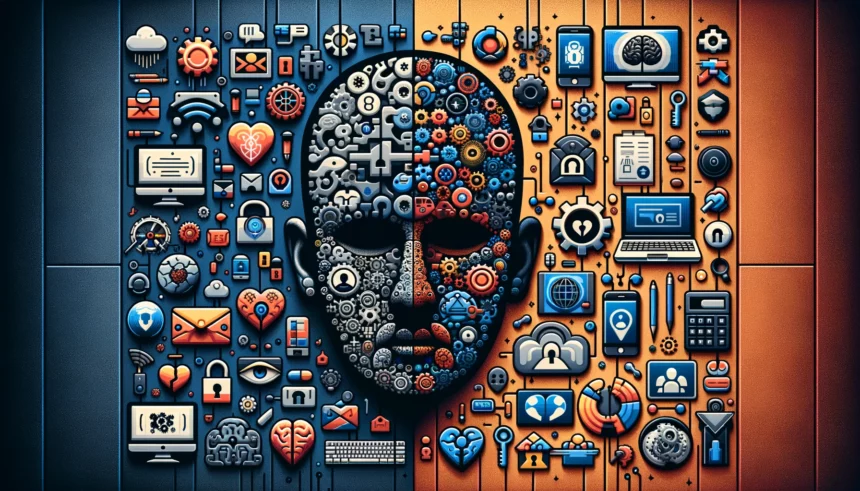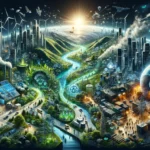In the labyrinth of modern existence, the proliferation of technology stands as both the architect and demolisher of the societal edifice. Its roots, deeply embedded in the very essence of human evolution, have sprouted a world where digital omnipresence is not just a convenience but a cornerstone of daily life. The narrative of technology’s rise is a tale of unparalleled innovation, bringing forth a renaissance in how we communicate, learn, and perceive the world around us. Yet, this narrative is punctuated by chapters of dissonance, where the very tools that connect us also foster isolation, transforming the societal landscape into a paradox of progress.
As we navigate through this era of digital abundance, the stark reality unfolds—technology, in its relentless march, has altered the human experience in ways unimaginable a few decades ago. The classroom has extended beyond four walls into the vast expanse of the internet, making knowledge more accessible but also challenging the traditional paradigms of education. Social media platforms, while providing a global stage for voices to be heard, often morph into arenas of comparison and discontent, subtly influencing societal norms and individual self-esteem.
This duality of technology’s impact is not just limited to the individual level but permeates the fabric of society at large. On one hand, technology has democratized information, empowered minority voices, and spawned innovations that address some of the most pressing global challenges. On the other, it has contributed to the erosion of privacy, exacerbated mental health issues, and heightened the divide between the digital haves and have-nots.
The economic landscape, too, bears witness to this dual-edged sword. Technology has birthed new industries, transforming budding ideas into global enterprises overnight. Yet, the same wave of innovation threatens traditional jobs through automation and artificial intelligence, sparking debates on the future of work and the inherent value of human labor.
As technology continues to shape our society, the question that looms large is not about its advancement, but the direction in which it propels humanity. It serves as a mirror, reflecting our values, biases, and aspirations. The challenge, therefore, lies not in the tools themselves but in our capacity to wield them with wisdom. It demands a conscious effort to balance innovation with ethical considerations, ensuring that technology serves as a bridge rather than a barrier, enhancing the human experience while safeguarding the essence of our collective humanity.
In this juncture of history, the dialogue between technology and society is more critical than ever. It is a conversation that transcends academic discourse, touching the lives of individuals across the globe. As we stand on the precipice of future advancements, it is imperative to remember that technology, in all its might, remains a creation of human ingenuity—a tool that, when guided by ethical principles and a vision for the greater good, has the potential to usher in an era of unprecedented human flourishing.
Thus, as we shape technology, let us not forget that it, in turn, shapes us. The balance we seek is not just in the external world of gadgets and algorithms, but within ourselves, in our values, choices, and the legacy we wish to leave for future generations. The future is not a distant dream but a reality we create with every click, swipe, and keystroke in the present. In this ever-evolving narrative, our role is not merely to adapt but to lead with foresight, compassion, and a deep-seated commitment to the collective well-being of society.
















